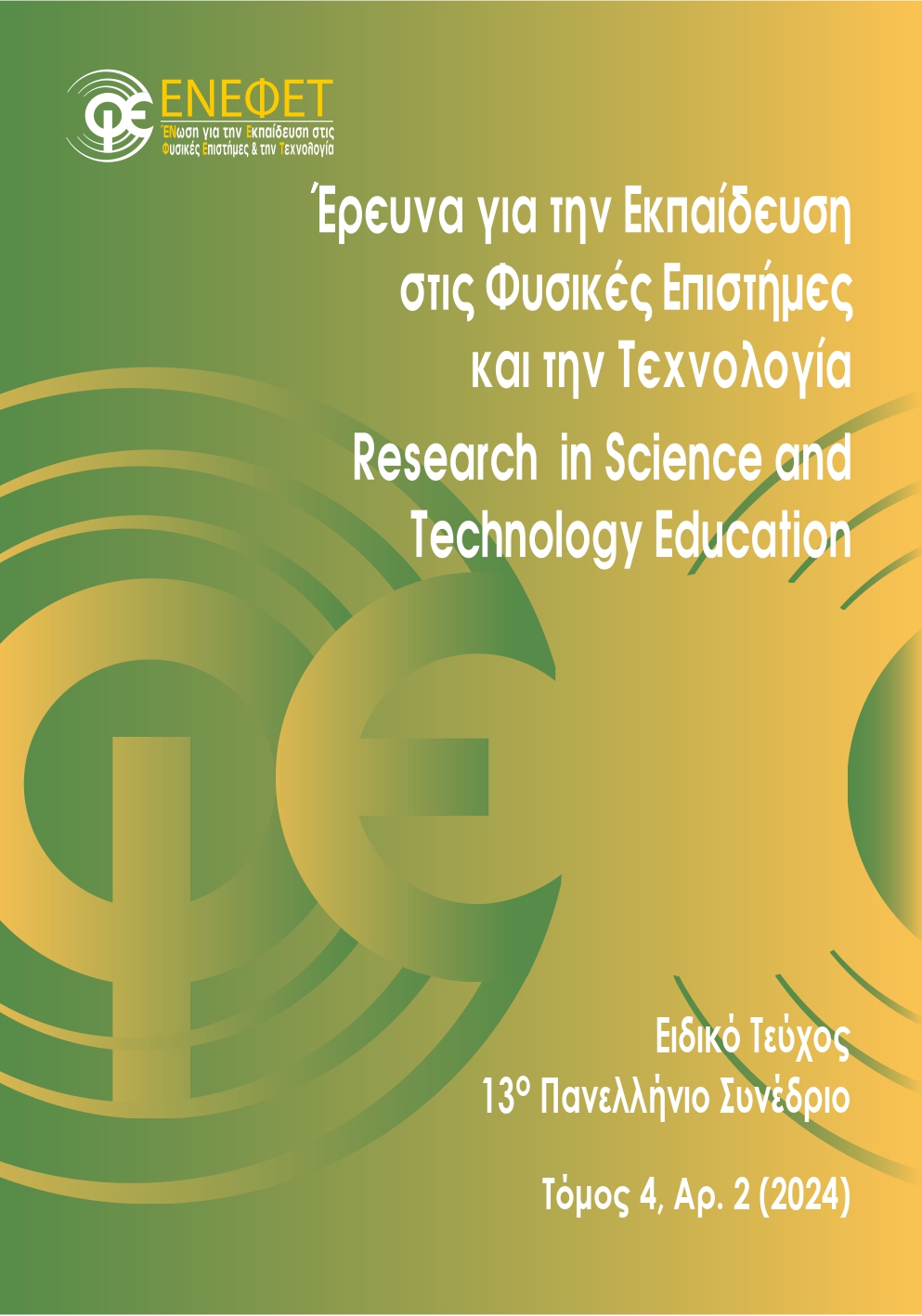Η Ρητή Χρήση του Mοντέλου Toulmin σε ένα Ομαδικό Διαλογικό Περιβάλλον, και οι Επιδράσεις του στην Κατανόηση της Έννοιας Συντονισμού «Δύναμη»: Μια Μελέτη Περίπτωσης
Abstract
Σε αυτήν την εργασία παρουσιάζονται τα αποτελέσματα από την ανάλυση του διαλόγου μιας ομάδας γνωστικά αδύνατων μαθητών/μαθητριών της β΄ γυμνασίου, σε ένα διαλογικό περιβάλλον επιχειρηματολογίας, στο μάθημα της φυσικής και στο γνωστικό πεδίο «δύναμη και κίνηση». Το μαθησιακό περιβάλλον προκαλούσε τις διαισθητικές ιδέες των μαθητών/μαθητριών, έκανε ρητή χρήση του μοντέλου Toulmin και αξιοποιούσε την χρήση συμπερασματικών κανόνων μονής κατεύθυνσης ως προτεινόμενες εγγυήσεις. Η μικρογενετική ανάλυση του διαλόγου βασίστηκε στις θεωρητικές προσεγγίσεις της Θεωρίας Έννοιας Συντονισμού (Coordination Class Theory). Η ανάλυση έδειξε ότι η ρητή χρήση του μοντέλου Toulmin, οδήγησε στην εκδήλωση ασυμμετρίας μεταξύ διαισθητικών ιδεών και επιστημονικής γνώσης για την δύναμη, που αντιμετωπίστηκε με τον μηχανισμό της Iδιοανέλιξης κατά Κουάϊν (Quinian Bootstrapping) οδηγώντας σε εννοιολογική εξέλιξη των μαθητών/μαθητριών.
Article Details
- How to Cite
-
ΝΑΟΥΜ Κ., Κόλλιας Β., & Βαβουγυιός Δ. (2024). Η Ρητή Χρήση του Mοντέλου Toulmin σε ένα Ομαδικό Διαλογικό Περιβάλλον, και οι Επιδράσεις του στην Κατανόηση της Έννοιας Συντονισμού «Δύναμη»: Μια Μελέτη Περίπτωσης. Research in Science & Technology Education, 4(2), 147–177. https://doi.org/10.12681/riste.38004
- Section
- Research Article
Authors retain copyright and grant the journal right of first publication with the work simultaneously licensed under a CC-BY-NC-SA that allows others to share the work with an acknowledgement of the work's authorship and initial publication in this journal.



